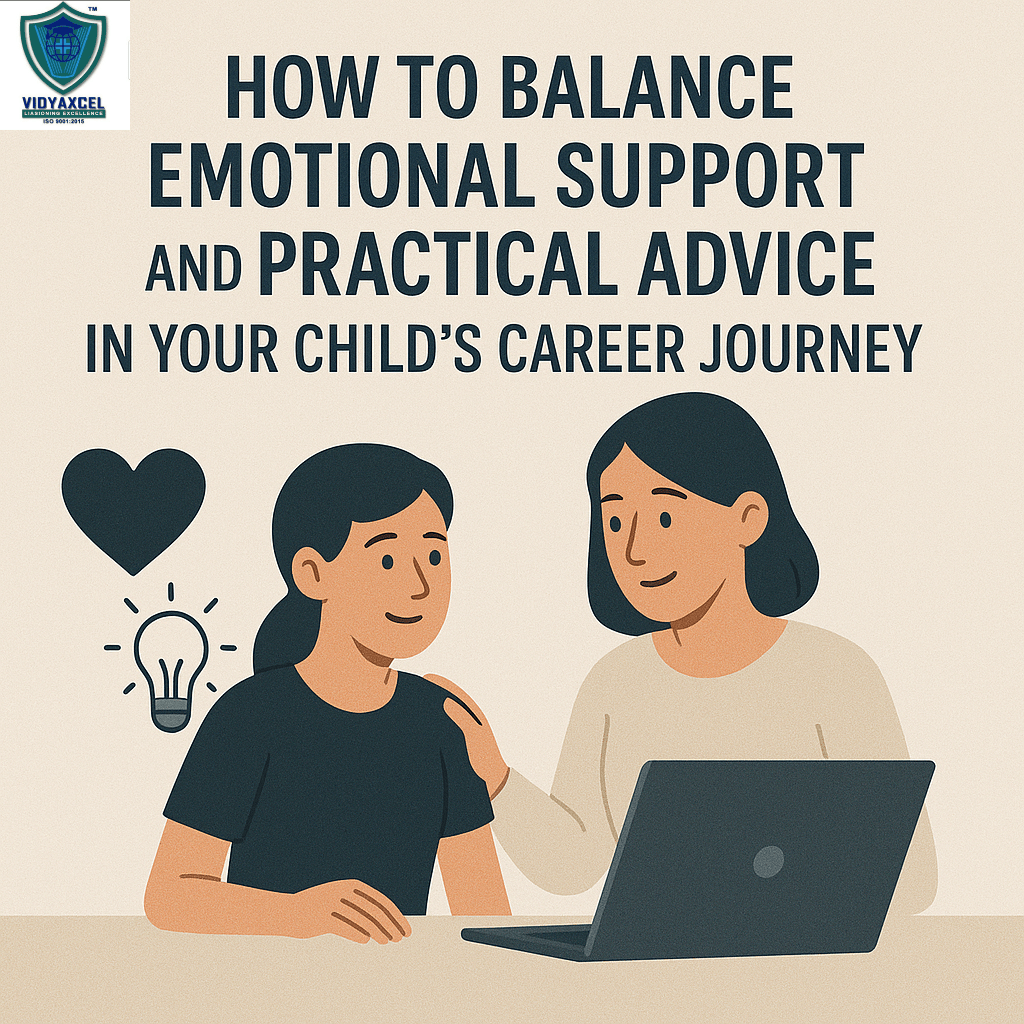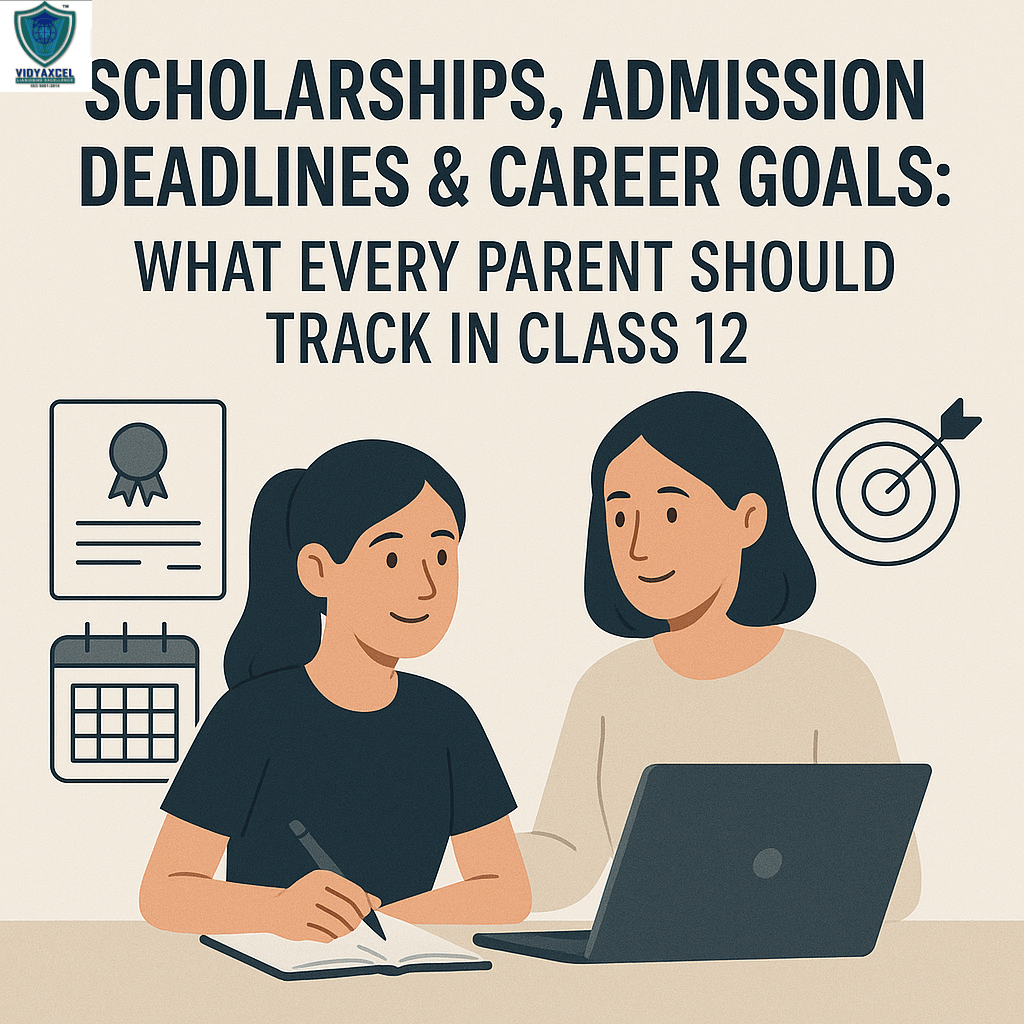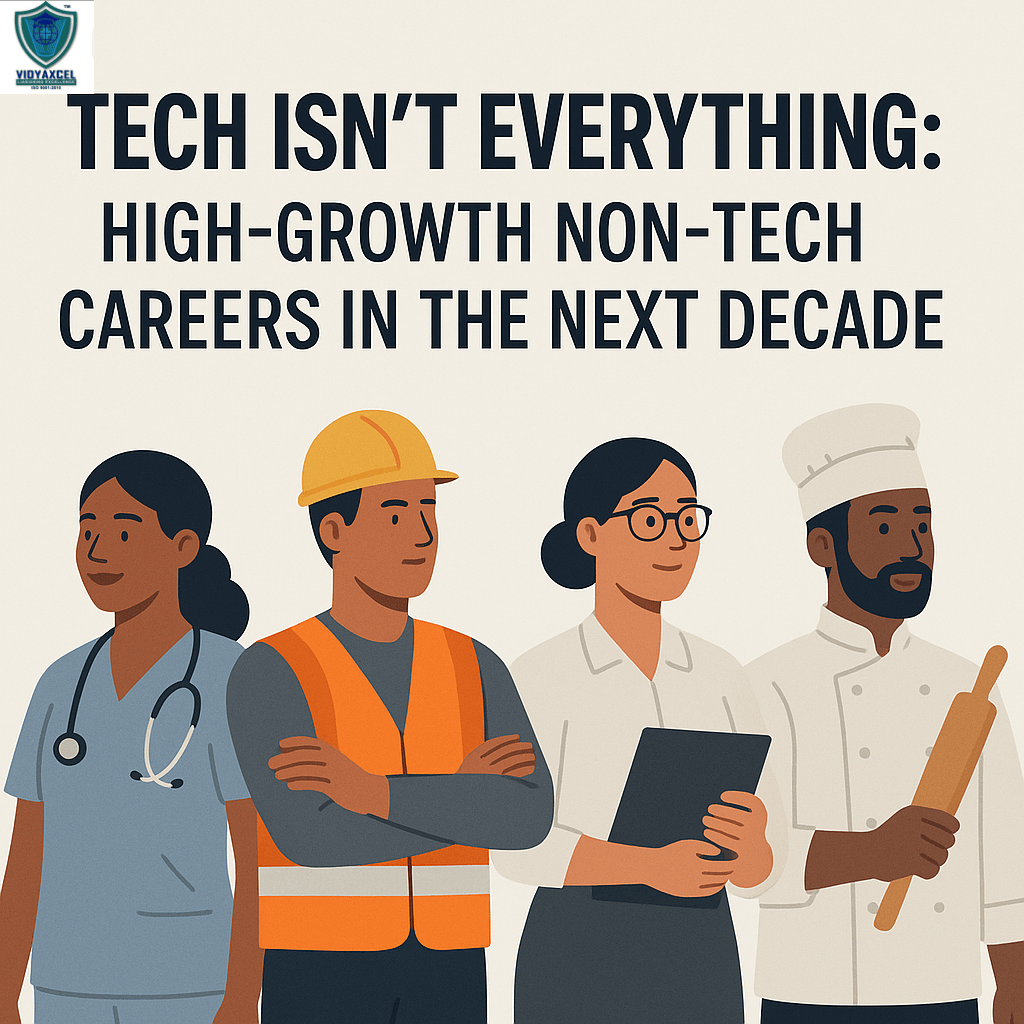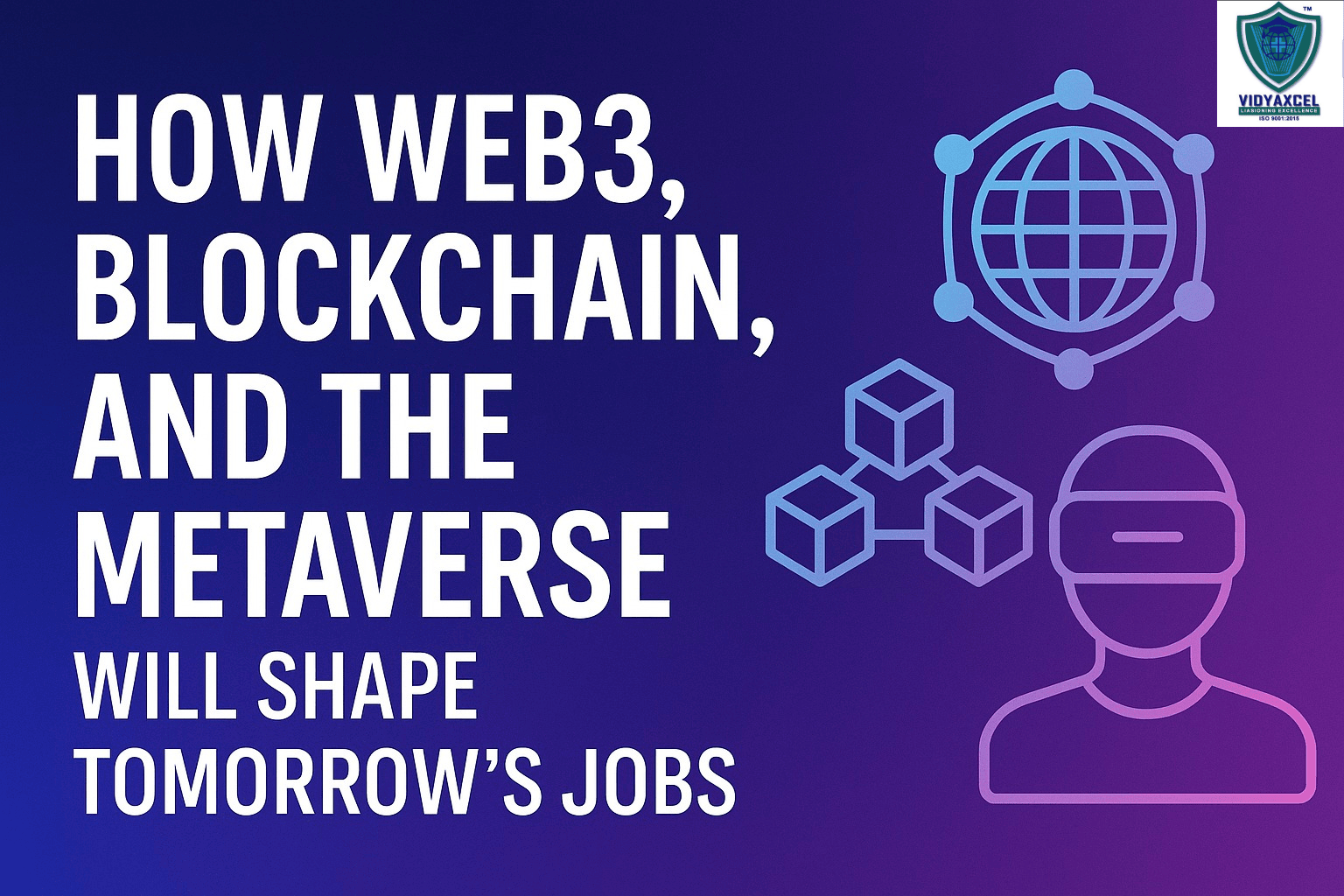Blog Details
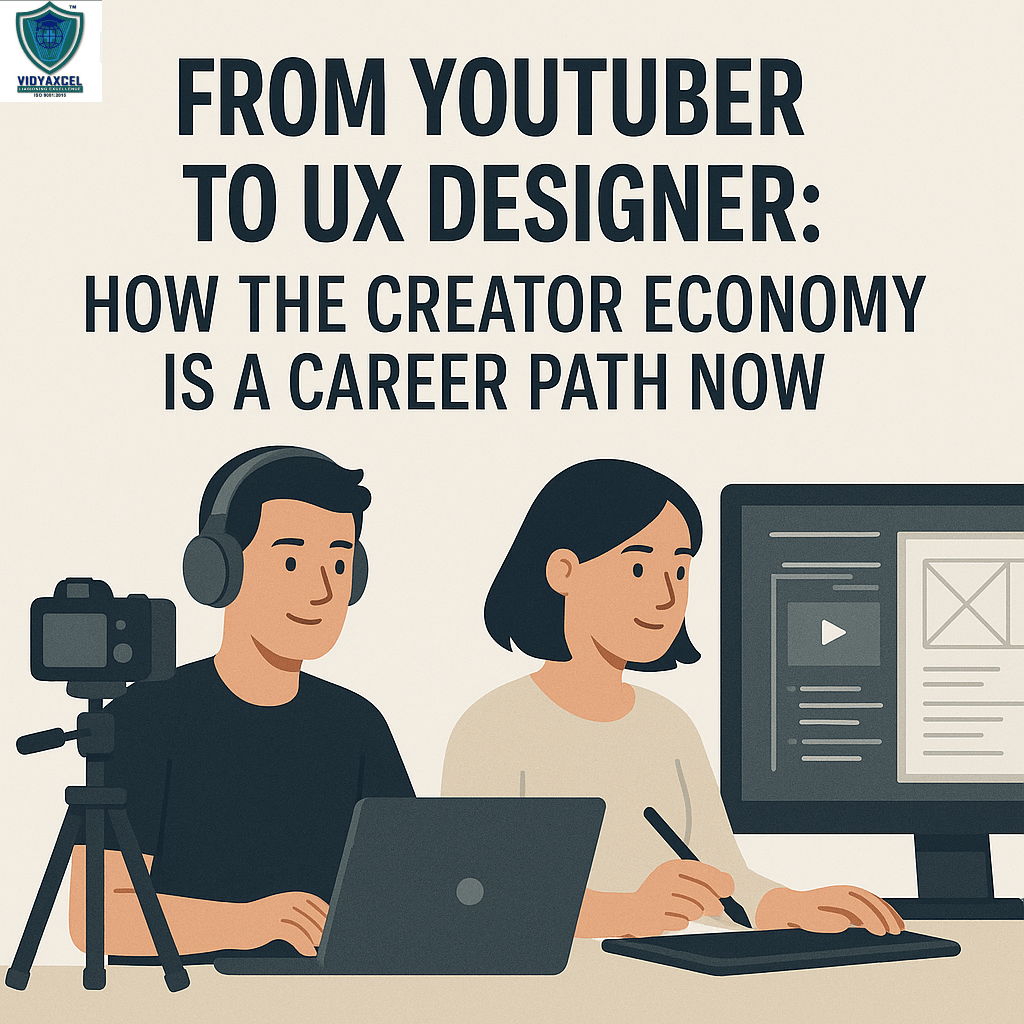
02Aug
From YouTuber to UX Designer: How the Creator Economy Is a Career Path Now
Gone are the days when “content creator” was just a hobby. Today, the Creator Economy is a legitimate career ecosystem that spans multiple industries, skill sets, and income streams. Whether it’s a YouTuber with 5 million subscribers, a podcaster monetizing through Patreon, a UX designer crafting user flows, or an online educator selling courses—creators are building businesses around their knowledge, creativity, and influence.
This blog explores how the creator economy has evolved into a viable career path, the range of opportunities it offers (both tech and non-tech), how platforms and tools are enabling creators, and how students and parents can approach it with a strategy—not skepticism.
1. What is the Creator Economy?
The Creator Economy refers to the digital ecosystem of individuals who build audiences online and monetize their content, skills, or personality through platforms like:
-
YouTube, Instagram, TikTok, Twitch (entertainment, education)
-
Substack, Medium, Notion (writing, knowledge sharing)
-
Canva, Figma, Adobe Creative Cloud (design)
-
Udemy, Teachable, Skillshare (education)
-
Patreon, Ko-fi, OnlyFans, NFTs, and Web3 tools (direct fan support)
This ecosystem supports:
-
Creators: Artists, vloggers, gamers, designers, educators
-
Enablers: Editors, managers, brand strategists, UX designers, marketers
-
Platforms: Tech companies that provide tools and distribution
The economy is valued at over $250 billion globally and growing fast.
2. Why the Creator Economy is Booming Now
🔹 a. Democratization of Tools
Anyone with a smartphone and an internet connection can create and publish.
🔹 b. Direct-to-Audience Business Model
No gatekeepers like publishers, record labels, or traditional employers. Creators build personal brands and earn directly through views, subscriptions, merch, or donations.
🔹 c. Rise of Niche Communities
From finance to fantasy fiction, there’s a community for every interest. You don’t need millions of followers—1,000 true fans can sustain your career.
🔹 d. Gen Z and Gen Alpha Preferences
Younger generations value authenticity over polish and want careers that align with their passions, not just paychecks.
3. From YouTuber to UX Designer – The Career Spectrum in the Creator Economy
The creator economy is not just about being on camera. Here’s a breakdown of high-potential careers within this ecosystem:
📹 A. Content Creators (Front-End Roles)
1. YouTubers & Streamers
-
Income: Ad revenue, brand deals, merchandise, memberships.
-
Skills: Scripting, video editing, camera confidence, SEO, storytelling.
2. Podcasters
-
Platforms: Spotify, Apple Podcasts, Anchor.
-
Revenue: Sponsorships, subscriptions, premium content.
3. Instagram Influencers / Reels Creators
-
Focus: Lifestyle, beauty, health, education, comedy.
-
Monetization: Brand partnerships, affiliate marketing, digital products.
🧠 B. Knowledge-Based Creators
4. Online Educators / Course Creators
-
Examples: Tech instructors, language tutors, art teachers.
-
Platforms: Udemy, Skillshare, Teachable, YouTube.
-
Income: Course sales, consultations, ebooks.
5. Newsletter Writers / Substack Authors
-
Niche: Finance, productivity, politics, wellness.
-
Earnings: Monthly subscriptions, affiliate income.
🎨 C. Design & Creative Services
6. UX/UI Designers
-
Why they matter: Every app, website, and course needs good design.
-
Skills: Figma, Sketch, Adobe XD, user testing.
-
Crossover: Many start as content creators and transition to UX roles—or vice versa.
7. Graphic Designers & Illustrators
-
Work: Logos, merch, thumbnails, ebooks, infographics.
-
Tools: Canva, Adobe Illustrator, Procreate.
8. Motion Graphic Artists
-
Demand: YouTube intros, transitions, storytelling.
-
Platforms: After Effects, Blender.
🛠 D. Back-End Support Roles
9. Video Editors / Audio Engineers
-
Behind the scenes but crucial. High demand for freelance or remote roles.
10. Social Media Managers / Content Strategists
-
Manage posting schedules, engagement, analytics, and brand partnerships.
11. Creator Managers / Agents
-
Help creators negotiate deals, schedule brand partnerships, and manage growth.
4. Key Skills Required in the Creator Economy
| Skill Category | Skills | Tools & Platforms |
|---|---|---|
| Creative | Storytelling, visual thinking, public speaking | Canva, YouTube Studio, TikTok |
| Technical | Editing, UX design, data analysis | Adobe Premiere, Figma, Notion |
| Business | Branding, contracts, pricing, marketing | Patreon, Kajabi, Stripe |
| Soft Skills | Consistency, resilience, adaptability | — |
Creators are essentially solopreneurs—so even non-technical careers require basic financial and business literacy.
5. Building a Creator Career: Roadmap for Students
🎯 a. Start with Passion and Problem-Solving
-
What are you obsessed with?
-
What value can you provide—education, entertainment, inspiration?
📱 b. Pick a Platform and Experiment
-
Don’t try everything at once. Focus on 1–2 platforms where your audience lives.
🛠 c. Learn the Tools of the Trade
-
Free resources: YouTube tutorials, Canva Academy, Figma Playgrounds
-
Paid learning: Skillshare, Coursera, MasterClass
💼 d. Freelance to Fund Your Journey
-
Sites like Fiverr, Upwork, and Toptal let you offer design, writing, or editing services.
-
Freelancing helps build your portfolio and income.
🚀 e. Grow a Personal Brand
-
Be authentic. Share your behind-the-scenes, failures, and learning.
-
Use LinkedIn, Instagram, and Twitter to build community.
📊 f. Diversify Income
-
Ad revenue is just the start. Add:
-
Affiliate links
-
Paid courses
-
Webinars/workshops
-
Consulting services
-
Crowdfunding
-
6. Career Counselling in the Creator Economy
Career advisors must now:
-
Recognize non-linear career paths
-
Value creative portfolios as much as resumes
-
Encourage experimentation + skill stacking
-
Provide guidance on monetization and legal frameworks
7. Role of Parents in Supporting Creator Careers
✅ Do:
-
Encourage exploration through side projects.
-
Let your child experiment while still in school/college.
-
Help them learn about budgeting, contracts, time management.
❌ Don’t:
-
Judge their success only by subscriber count.
-
Compare them with traditional jobs.
-
Dismiss content creation as “just fun.”
Parental support often determines whether a creator becomes a hobbyist or a professional.
8. The Downsides & Realities of the Creator Economy
-
Inconsistent income – especially early on.
-
Burnout – due to 24/7 content demands.
-
Algorithm dependency – changes can kill reach overnight.
-
Online hate & comparison – mental health risk.
💡 Solution:
Creators should build multiple revenue streams and take mental health seriously. A creator career is a marathon, not a sprint.
9. The Future: Creators as the New Entrepreneurs
-
Micro-entrepreneurs: Many creators hire teams, build apps, launch product lines.
-
Creator-Driven Startups: Creators now raise funds, launch brands (e.g., Mamaearth, MrBeast Burger).
-
Web3 & Decentralized Platforms: Creators get more control, monetization without middlemen (e.g., Mirror, Lens Protocol, Farcaster).
Conclusion
The Creator Economy isn’t about “playing on the internet”—it’s about owning your brand, building communities, and creating value at scale. It’s an entrepreneurial revolution that values authenticity, creativity, and direct impact.
Careers are no longer confined to offices and degrees. Today, they are built in home studios, coffee shops, and Discord servers. The earlier students, educators, and parents understand this shift, the better prepared they will be for the future of work.
FAQs
1. Can you really make a stable income as a creator?
Yes—but it takes time. Most successful creators diversify their revenue with brand deals, courses, freelance work, and community funding. Like any career, stability grows with skill, discipline, and strategy.
2. What if I don’t want to be on camera?
You can still thrive! Careers in:
-
UX/UI design
-
Podcast editing
-
Copywriting
-
Newsletter publishing
-
Ghostwriting
-
Digital product creation
3. Do creators need a college degree?
No formal degree is required, but skills matter. A strong portfolio often matters more than a resume. However, structured learning (online or offline) can accelerate your growth.
4. How can I get started as a student with no money?
-
Use free tools (Canva, CapCut, Notion)
-
Start on platforms with organic reach (YouTube Shorts, Instagram Reels)
-
Join creator communities for collabs and feedback
-
Offer freelance services for side income
5. Is the creator economy just a trend?
No. It's evolving, not disappearing. As more people value autonomy, flexibility, and passion-driven work, the creator economy will become a core part of the global workforce.
Our Office: West Bengal, Maharashtra & Delhi.
For More Infomation about admission in Medical, Engineering, Management & Study in Overseas Details.
View Current Study Overseas, Medical, Engineering & Management Admission Details Video.
